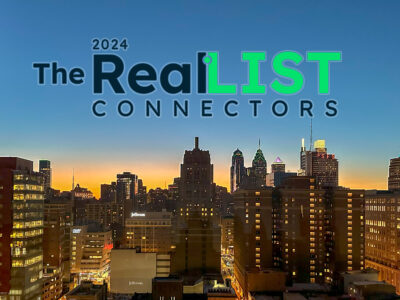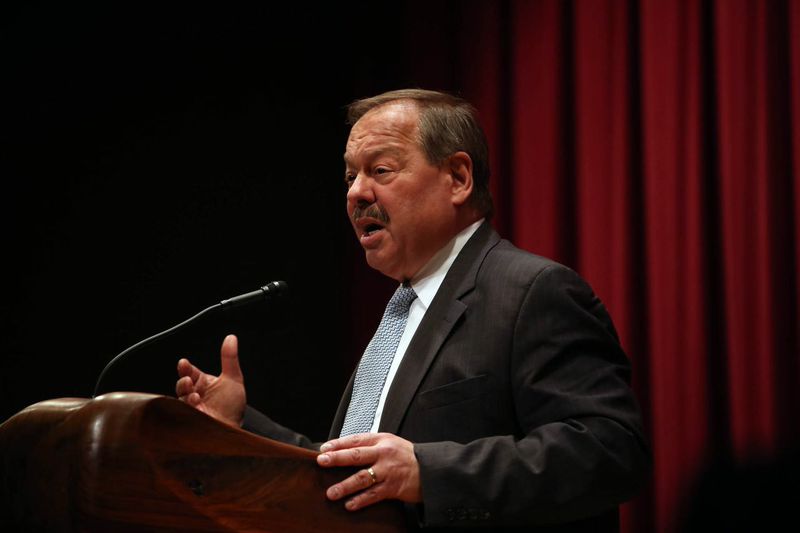Mayoral candidate Nelson Diaz pays all of his utility bills online and he suggests you do so too.
That’s what he roared to the crowd, during the first-ever Philly Tech Week Mayoral Forum, held at the Free Library Monday night. (Yes, he roared.)
It was one of the more outlandish statements made during the forum, focused on issues that touch technology and affect the local tech community. (Diaz was answering this question, submitted via Twitter, ostensibly about the Water Department. Instead, he expounded on the virtues of paperless billing.)
Five of the six Democrats running for mayor spoke at the forum, where they got two minutes to give a top-level picture of their platform and its tech relevance and then ten minutes to answer questions from Twitter and a panel of community members. The panelists, who had evidently done their homework, were:
- D8A cofounder Jon Gosier
- Wilco Electronic Systems executive vice president Brigitte Daniel
- Former co-director of the Mayor’s Office of New Urban Mechanics Jeff Friedman
The technology community came out strong for the forum, with roughly 350 people packing the Free Library’s auditorium and a lively conversation on Twitter.

Community panel, left to right: Jon Gosier, Brigitte Daniel and Jeff Friedman. (Photo by Juliana Reyes)
It’s a testament to the Philadelphia tech scene and its growing power that nearly all the candidates spoke at the event, which focused on a niche outside of most of the candidates’ comfort zones. (Here’s our story on how tech-savvy the candidates seemed on paper, from back in December.) The one Democratic candidate who did not show was Milton Street.
It wasn’t a debate, but if we had to choose a winner, we would go with former Councilman Jim Kenney (with Doug Oliver coming in second). When it was Kenney’s turn to speak, he jumped straight into the importance of open data. It showed he knew his audience and that he had prepared. As the race’s progressive candidate, this isn’t entirely surprising.
Kenney said he wanted to involve the tech community in developing budgets for city departments and that he wanted to “make data as accessible as possible.” He also talked about transparency in terms of records requests, an issue on which the Nutter administration has been criticized.
“We need a real open records policy,” he said.
Below, find our recap of each of the candidates’ remarks. Find more coverage of their tech-relevant stances here.
###
Jim Kenney
His innovation plan: Hiring. When asked how he would get department heads to care more about the data they’re producing, Kenney said he would appoint commissioners who understand the importance of open data. (That comment called to mind former Chief Data Officer Mark Headd’s tussle with Revenue Commissioner Clarena Tolson over property tax data.)
Elaborate, please?: When asked how he would attract venture capitalists to the area, Kenney said he’d use federal credit unions and banks but didn’t give much detail on how exactly.
TIL: Kenney loves blocking trolls on Twitter. He called it “cathartic.” But when the enthuastic (and sometimes bizarro) tweeter launched his campaign for mayor, his team ordered him to unblock most of those trolls. He also lamented getting flak for his Twitter. “I thought you were supposed to be real,” he said.
·
Lynne Abraham
The former district attorney told Philly Mag last winter that she didn’t send emails, so it was anyone’s guess which way her presentation was going to go. She led off Monday’s event.
What worked: Abraham said she would keep StartUp PHL funded and that she wanted to serve small businesses better by simplifying the tax code, giving them greater access to capital and increasing procurement opportunities. She said she drew no distinction between tech startups and other small businesses.

Lynne Abraham. (Photo by Steph Aaronson/Philly.com)
What didn’t work: She skirted a question on how to make the tech scene more inclusive and didn’t seem to understand a question about open data. (“Is there any specific dataset you would want to make open?” Abraham’s response: no.)
What surprised us: In her opening two minutes, Abraham talked about the importance of training cops how to use the technology that’s available to them in order to spot crime trends and “download data.” That’s on point.
·
Doug Oliver
The former PGW exec’s winning moment was when he described himself as a bootstrapper. The crowd laughed and seemed to take a shining to the charismatic candidate. But before that, Oliver almost sounded confused about which forum he was speaking at. He focused a lot on education without making a strong tie to technology (despite plenty of opportunities to talk STEM, edtech or youth entrepreneurship).
His innovation plan: “We need to infuse an identity of innovation into every single city department,” Oliver said. Every commissioner should be thinking about how to use technology to improve the city, he said.

Doug Oliver. (Photo by Steph Aaronson/Philly.com)
Open data cred: When asked, Oliver said he would be on board with publishing data on city employee salaries.
StartUp PHL redux: Oliver said he would create a $1 million fund, inspired by StartUp PHL, that he hoped could cater to college students with entrepreneurial intentions.
·
Nelson Diaz
The former judge drew many of the laughs of the night, though some seemed to be at his expense. During his 12-minute talk, his voice grew louder and louder. He closed by saying that he was the only candidate who would tackle wage tax reform. “Somebody’s got to start it,” he said. “If I don’t start it, then nobody else will because no one else has got the guts.”
About that municipal WiFi…: Diaz said he would mandate universal WiFi and use the Comcast franchise agreement to do so, calling out Comcast Chief Business Development Officer Sam Schwartz, seated in the second row of the audience. (He later said that he paid all his Comcast bills online. “I don’t owe them a dime,” he said.) (Full disclosure: Comcast is the title sponsor of Philly Tech Week 2015, which is organized by Technical.ly.)
Toward a more inclusive tech scene: Diaz talked about the digital divide in a compelling way, describing an entrepreneur he met, who “has all of these innovations” but had never left Center City in the thirteen years that he had lived in Philadelphia. Center City has become a “secure haven,” Diaz said, and he would want to move tech outside of its boundaries.
Exit Interview: Diaz’s son left Philadelphia 15 years ago to join Qualcomm. Back then, Diaz said, Philadelphia didn’t have much by way of a tech community.
·
Anthony Hardy Williams
For the most part, the state senator talked in politician-speak. He didn’t give many specific details on his tech initiatives or answer questions directly. It was hard to follow his rambling, as opposed to a candidate like Kenney, who spoke concisely. What Williams did do well was show an understanding of a mayor’s limited role in shaping economic trends. When talking about growing the tech scene, he said: “The first thing that [the next mayor] needs to do is get out of the way because we will screw it up.”
His innovation plan: Give people in the tech scene a seat at the table. He said he would play more of a facilitator role when it comes to innovation initiatives. (This reminds us of how StartUp PHL was spearheaded by people like Philly Startup Leaders’ Bob Moul and Danielle Cohn.) When pressed on who those people would be, Williams played coy, though he said “I have a strong bench.” (Gosier is potentially one of those on the bench, he said.)
Buzzwords and topics he touched on but didn’t explore: Social entrepreneurship, “paperless government,” youth app development.
Find additional coverage of the forum by the Daily News, Citypaper and Philly Weekly.
Join the conversation!
Find news, events, jobs and people who share your interests on Technical.ly's open community Slack
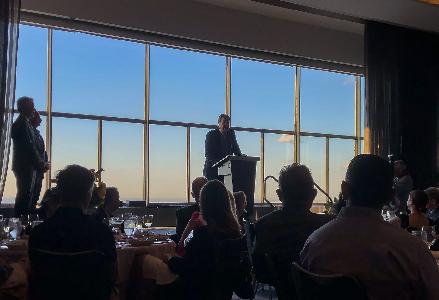
Philly daily roundup: Minecraft in a Philly school; PTW kicks off; Tech and art happy hour
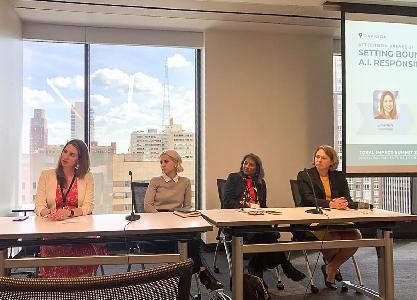
Philly daily roundup: Philly's top innovation leaders; City buildings go solar; PTW kicks off on Friday
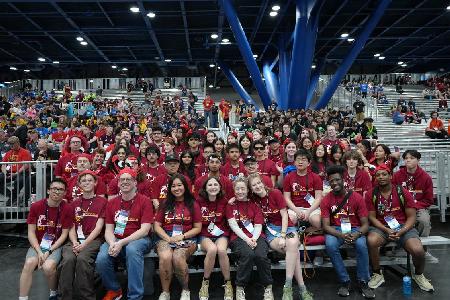
Philly daily roundup: UPenn's AI master's degree; Advice for EDA Tech Hubs; Last day of ACP
